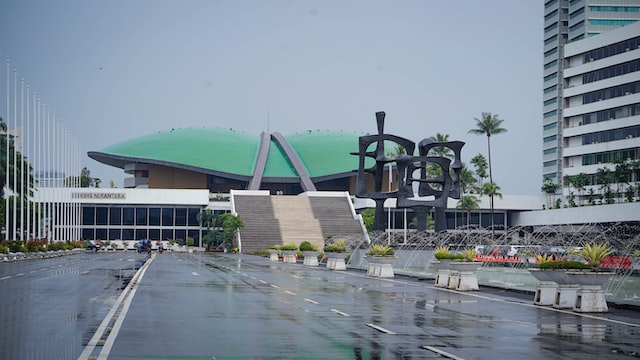The Indonesian House of Representatives has decided to move forward related to the stipulation of Government Regulation in Lieu of Law No. 2/2022 concerning Job Creation becoming a Law on Wednesday 15th February 2023.
Also known as Omnibus Law, House of Representatives Commission III member Arsul Sani explained that only two options lie for the body: to accept or reject the job creation regulations. As a result, the current political environment has compelled the majority of factions to accept the Job Creation Law.
He acknowledged that the House of Representatives must accept the regulations because of the current reality. That is, investors must be made comfortable with legal certainties regulated in job creation regulations.
“The problem is, for example, if the job creation regulations are rejected, there will also be complications, right? A lot of investment comes in with the belief that the rules will not change,” he explained.
Nonetheless, Sani stated that the House of Representatives could still revise it after the regulations are passed into law or those who objected to it through a judicial review.
Furthermore, the new regulations would be ratified at the House of Representatives Plenary Meeting at the next session because it is currently in a recess period.
The House of Representatives legislative body approved the regulations in lieu of law number 2/2022 concerning job creation, and so it was brought to the second level of discussion to be ratified into law.
“We ask if the results of discussions of regulation number two of 2022 concerning job creation can be approved to proceed to the second level of discussions,” stated Deputy Chairman of House of Representatives legislative body M Nurdin, following the approval on Wednesday, 15th February 2023.
Meanwhile, within the legislative body’s mini-faction, Nurdin explained that out of the nine factions, there were seven who agreed that the regulations should be passed into law, while two refused.
The seven factions are the PDI Perjuangan (PDIP), Golkar, Gerindra, NasDem, the National Awakening Party (PKB), the National Mandate Party (PAN), and the United Development Party (PPP). On the other hand, the factions that disagreed were the Democratic Party and the Prosperous Justice Party (PKS).
Among the biggest controversies in the job creation law were relaxed rules on severance pay, changes to the minimum wage formula, contract labour and outsourcing, and a stipulation that environmental studies are only required for high-risk investments
The law reduces the severance pay cap from 32 months to 19 months, plus six months paid by the government. It also raises the one-month pay for every year of service severance pay standard from the minimum to the maximum.
The Coordinating Minister for the Economy Airlangga Hartarto said that the issuance of the Job Creation Law was motivated by the government’s efforts to anticipate the dynamics of the global economy which had a significant impact on job creation.
“This is also a pre-crisis prevention effort that is far better than the efforts taken after the crisis,” he said.
Hartarto said the issuance of the Job Creation Law was also followed by other policies in the financial sector, such as the Financial Sector Development and Strengthening Law and policy revisions related to export earnings, to anticipate a global economic downturn. Furthermore, it provides legal certainty for business actors, including micro, small and medium enterprises, as well as for workers.
In November 2021, the Constitutional Court has decided the formation of the Job Creation Law is conditionally unconstitutional as long as the legislator does not correct it. There are several judicial review points with Number 91/PUU-XVIII/2020.
First, even though the Job Creation Law is unconstitutional, this regulation remains in force until there is revision with a deadline of two years from the decision or until 25th November 2023.
Second, if by 25th November 2023, a new law has not been enacted, then the current Job Creation Law will not apply. Everything that has been changed by the Job Creation Law is now valid again.
Third, asking the government to suspend all actions or policies that are strategic and have broad impacts. Apart from that, it is also not justified to issue new implementing regulations relating to the Job Creation Law.




